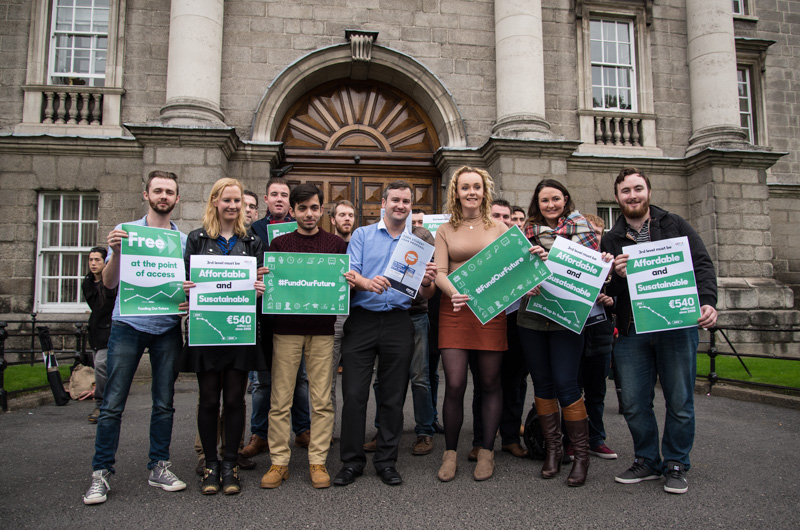Ógra Fianna Fáil today launched their 2017 budget proposal, reiterating their call for an optional income-contingent loan scheme and the re-introduction of the Student Accommodation Scheme to address the student housing crisis.
In a press release, President of Ógra Fianna Fáil, Eoin Neylon, said that “young people have been the worst affected by the downturn in the economy”, adding that they hope their proposals “highlight some of the priorities we wish to see implemented in Budget 2017″.
In the proposal document, the youth wing of Fianna Fáil outline their stance on the funding of the higher education sector. Last year, they proposed an optional income-contingent loan scheme that would see students pay €5,000 a year, alongside a full grant scheme for those from lower socio-economic backgrounds.
Speaking to The University Times , Neylon said that due to “budgetary and economic improvements” they feel that it is now possible to freeze the student contribution at €3,000, and that future budgets can reduce this contribution.
Neylon added that there was no need to add a further “burden” on students.
Neylon went on to say that he would like to see students been able to apply “up to €10,000 per year” and that the reason for their advocation of an optional income contingent loan scheme would be “for people who don’t normally qualify for [maintenance grants]”, giving everyone an opportunity to enter third level education on a “free-fees” footing.
He added that he would also have the “threshold of maintenance grants increase”, for those who are from lower income households, but fall out of qualification for the grant scheme.
In line with the report of the government’s higher education funding working group, published in July, the proposal asks for an increase of state-funding in the sector: “[The report] identifies the issues surrounding funding and the future sustainability of our 3rd level institutions. The Government must take action to fund our future and bring sustainability into the higher education sector.”
Neylon added that he would like to see government make a “solid commitment to put exchequer funding in higher education”.
The proposal of an income-contingent loan scheme sets Ogra Fianna Fáil apart from the main party leadership, which in recent weeks has expressed concern about the impact of loan schemes. Speaking to The University Times in September, Fianna Fáil’s Spokesperson for Education and Skills, Thomas Byrne, said the party was “wary” about the possible effects of loan schemes.
Their proposal also calls for the restoration of the postgraduate grants, something that Fianna Fáil have made a central pillar of their higher education policy in recent months. The document highlights that this would come at a cost of €53 million.
“The complete removal of the postgraduate grant has had a detrimental effect”, commented Neylon, who went on to say that such a removal was “hampering not only research, but teaching”. He added that postgraduates provide the ability for Ireland to “export quality goods, knowledge, and research”.
The proposal also calls for the introduction of a Student Accommodation Scheme. This would see relief for property owners where the costs for refurbishment and other expenditure on student rental accommodation can be set against the rental income from their property and against other Irish rental income. This would reduce the taxable income of those who incur the costs of providing purpose built or refurbished student accommodation.
Between 2007 and 2010, the scheme cost the government €153 million. Ógra Fianna Fáil’s budget proposal argues that “not all of the €156 million though is ‘lost revenue’ however, as, it could be argued, a lot of this would not exist in the first instance without the scheme in the first place.”
Neylon believes that this re-introduction of the Student Accommodation Scheme would provide “purpose built student accommodation and reduce the burden on the private rental market”.
Other proposals in the document include the establishment of a separate Mental Health Authority, as they “firmly believe that we need a new approach to mental health care in Ireland”.
They also propose further investment and emphasis on apprenticeships, estimating that 50 per cent of the workforce will require medium-level skills, along with entrepreneurship in schools, and improving pay conditions for newly qualified teachers.
In addition to their student accommodation proposals, they have outlined that further investment is needed in social housing and improving local authority housing: “It is clear more must be done in both alleviating homelessness and to reduce some of the pressure on the private rental market.”







